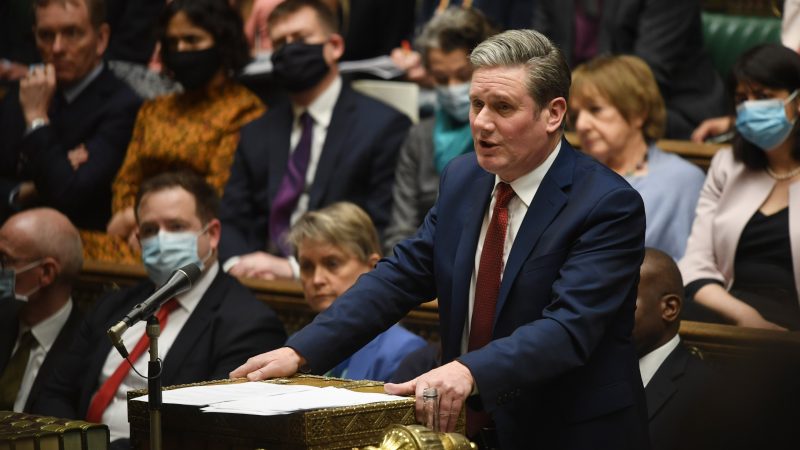
Prime Minister’s Questions today began with a standing ovation, as MPs stood and clapped to welcome the Ukraine ambassador to the House of Commons. Naturally, the exchange between Boris Johnson and Keir Starmer focused solely on the war in Ukraine, more specifically the UK’s response. The Labour leader echoed the contribution of Labour MP Margaret Hodge, who in the chamber yesterday named ten key Russian oligarchs linked to the UK.
“We must stand up to Putin and those who prop up his regime,” Starmer said. They have “dipped their hands in the blood of Putin’s war”. Roman Abramovich was the first to be highlighted. Johnson had to admit last week that he was mistaken when he claimed that the Russian billionaire and Chelsea FC owner was “already facing sanctions”. This week, the Prime Minister would not go into detail, saying: “It’s not appropriate for me to comment on individual cases at this stage.” (Although of course he did comment on some individual cases when he originally announced sanctions.)
Starmer then named Igor Shuvalov, Russia’s former deputy Prime Minister. He owns expensive property just minutes away from parliament, the Labour leader said – why is he on the EU sanctions list but not ours? Tory MPs listened quietly, attentively. “The vice is tightening on the Putin regime and will continue to tighten,” Johnson said today, hinting that there would but without giving away any details. He pledged to publish, in time, a full list of oligarchs associated with Putin’s regime.
The long-awaited economic crime bill has been introduced amid the Ukraine crisis, but Starmer wants to see action taken more urgently. The bill would not come into force for existing owners of property in the UK until 18 months after it is approved by parliament, the Labour leader pointed out. “Why are we giving Putin’s cronies 18 months to quietly launder their money out of the UK property market and into another safe haven?” he asked.
As Starmer pushed Johnson to go quicker and tougher on sanctions, the Prime Minister tried to make the case that the Labour leader was being unconstructive and failing to recognise what the UK has already done. But he couldn’t quite pull it off. Leaving the more critical tone and the demands for visa waivers to the SNP, Starmer was happy to frame his own requests for tougher action as an offer of support and an invitation to work together. While increasing the pressure on Johnson and subtly sowing division among Conservative MPs wherever possible, the Labour leader is determined to portray himself as a Prime Minister in waiting.




More from LabourList
SPONSORED: ‘Industrial hemp and the challenge of turning Labour’s priorities into practice’
‘A day is a long time in politics, so we need ‘action this day’’
Strong support for child social media ban among Labour members, poll reveals